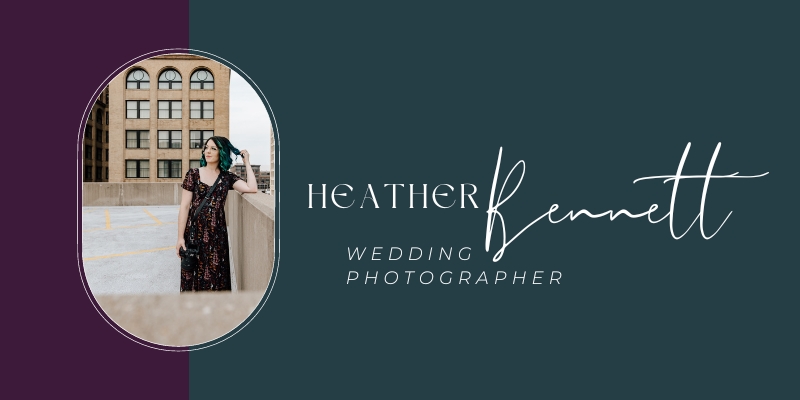10 Must-Ask Questions When Choosing Your Wedding Photographer
June 21, 2024
Planning your big day or dream elopement? Well, buckle up because you’re about to embark on an epic journey—one filled with breathtaking moments, candid laughs, and, of course, the perfect photographer to capture it all. Or, at least, you hope.
As a former bride, selecting a photographer was one of the most critical decisions I made during my wedding planning process. It was so important to us that we have non-traditional photos that really evoked the emotion of the day, but we were working on a limited budget which made things pretty challenging. I had absolutely no clue what to ask or look for when hiring a photographer, and we ended up getting really lucky choosing the photography team we did for our day.
I’ve been on the other side of weddings for three years now, so I know what red flags to watch out for and what questions to ask potential photographers so you can find the perfect one. Grab your notebook and pen, because I’m about to spill the tea on the essential questions you need to ask when searching for your wedding or elopement photographer.
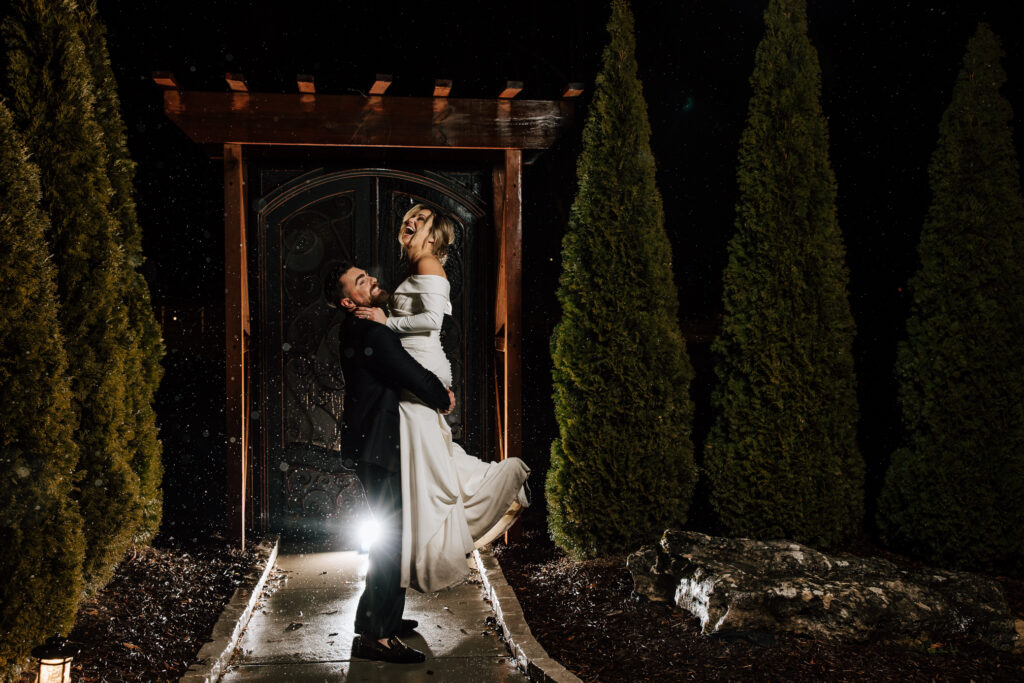
1. What’s Your Editing and Shooting Style?
Every photographer has their unique style and approach to capturing love stories. Whether you’re drawn to moody, cinematic shots or bright and airy images, it’s essential to find a photographer whose style aligns with your vision for your big day.
When considering editing style, it’s also important to consider your venue. If your venue is in a bright, white barn decorated with neutrals and pastels, hiring a dark and moody photographer isn’t going to make sense, and you’ll probably end up disliking your photos. Your decor and setting should match the style of the photographer you’re hiring. Your venue and choice of decor isn’t something the photographer can change, so make sure to choose someone whose images complement the setting they’re photographing.
Likewise, you’re going to want to know whether your photographer takes a traditional approach (heavily directing all the shots in traditional poses) or non-traditional approach, like with documentary or editorial wedding photography. This greatly influences the feel of the photos you’ll be getting back. Read more about shooting styles here.
RED FLAG: Your photographer tells you they have a lot of different styles and can edit the way you want them to. This might sound like a good thing, but it’s typically something only novice photographers offer. The vast majority of professional photographers choose to only edit in one style so they can guarantee consistency to their clients. When a photographer edits in a lot of different styles, you have no clue what kind of photos you’ll actually get back, and you’re not protected in this way under their contract. I’d rather hire an expert in one area so I know the quality of the work I’ll get back, rather than leaving it up to chance.
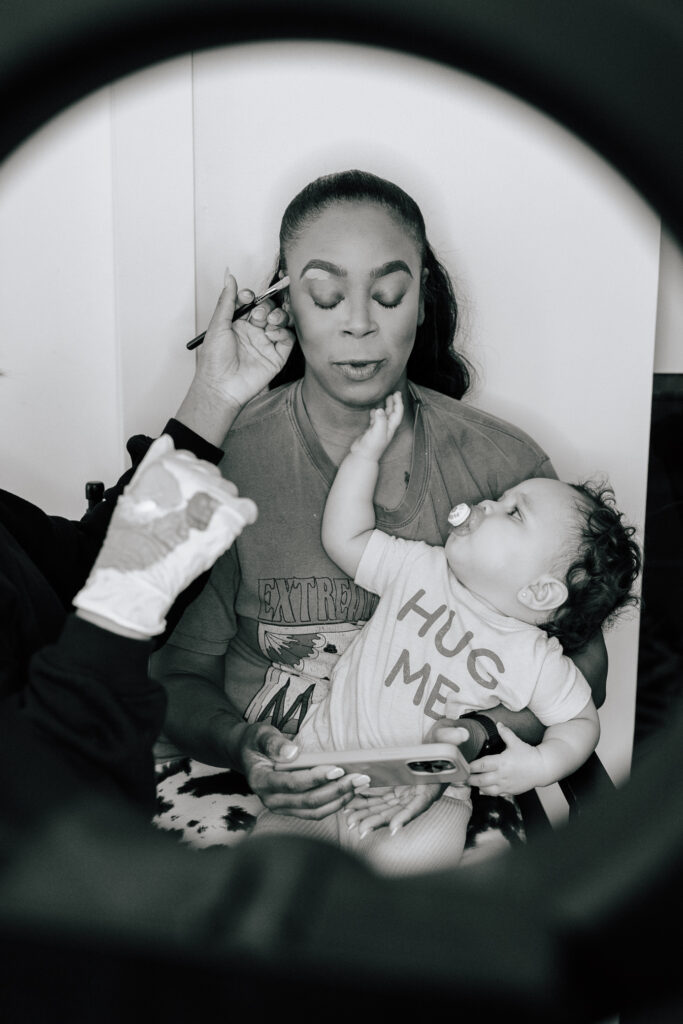
2. How Many Weddings Have You Shot In The Last 3 Years?
This is a much better question than “how much experience do you have? or “how many weddings have you shot?” because it shows recent experience and gives you an idea of how many weddings they take on each year. Wedding photography is a beast of its own, requiring a keen eye for detail, quick reflexes, and the ability to navigate the unpredictable nature of live events. Make sure your photographer has ample experience shooting weddings or elopements and can handle the challenges that come with them. And that leads me to my next question…

3. How Many Weddings Do You Have Booked For My Wedding Year? Do You Have a Maximum Number of Weddings You’ll Take On?
Most professional wedding photographers typically book between 12-30 weddings per year. It may not seem like a lot, but for every hour of coverage, many photographers spend around 3-4 hours editing. That means an 8-hour wedding day may take a full 40-hour work week to photograph and edit, and that time doesn’t even include drive time to and from the wedding or any other business tasks they need to do on a regular basis, like client communication, location scouting, accounting and taxes, social media marketing, updating their website, networking with other vendors, working on client guides, etc.
RED FLAG: Your photographer books as many clients as they can. Sure, this means they have more experience on paper by the time your wedding rolls around, but they’re sacrificing client experience because they just won’t have time to focus a lot on each client. They may be burned out and uninspired during your wedding day, and that’s not what you want from a creative professional.
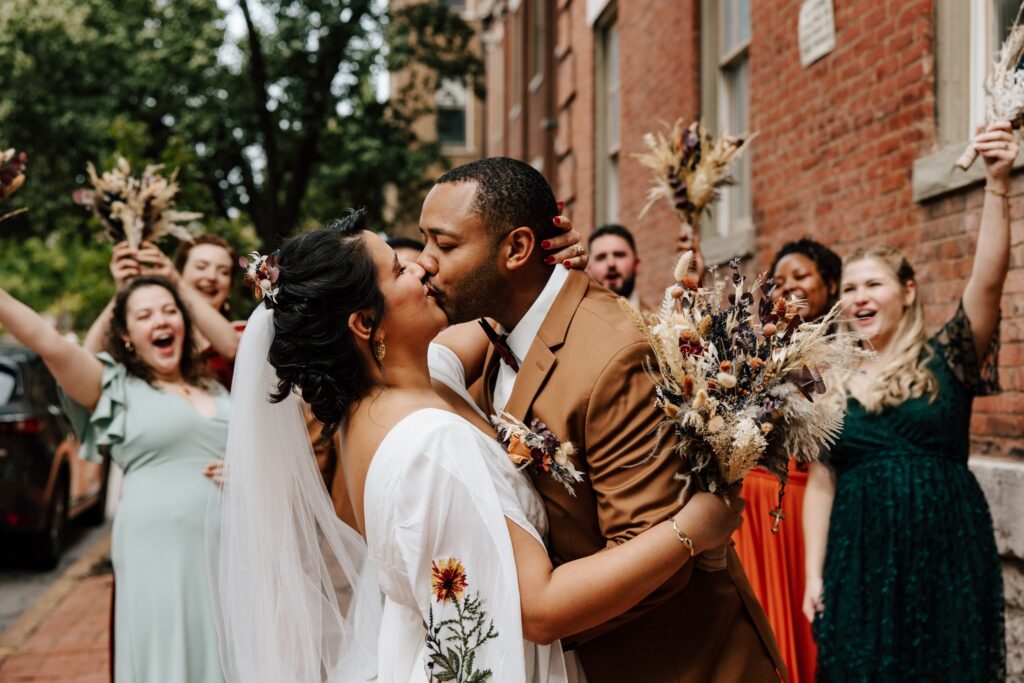
4. Can I See A Full Gallery From A Recent Wedding?
Actions speak louder than words, and a photographer’s portfolio is a window into their skills, creativity, and storytelling abilities. With a full gallery, you can see how they approach every part of the day instead of just seeing their favorite, most perfect photos. You’ll get a much better sense of their style, consistency, and the moments they excel at capturing rather than just looking through their website or Instagram.
RED FLAG: They don’t have a full gallery to provide to you or make excuses for not sending full galleries to potential clients. This could mean a few things. One, they’re inexperienced and most of their work comes from styled shoots, which are not a good representation of what a photographer can produce at a wedding. Two, they do a lot of associate shooting for other photographers and don’t have much experience editing their own galleries in full (which means they may not know how to handle editing difficult lighting scenarios that are sometimes unavoidable on a wedding day). Three, they aren’t proud of any of their full galleries and only want to show you their best photos that have been hand selected.
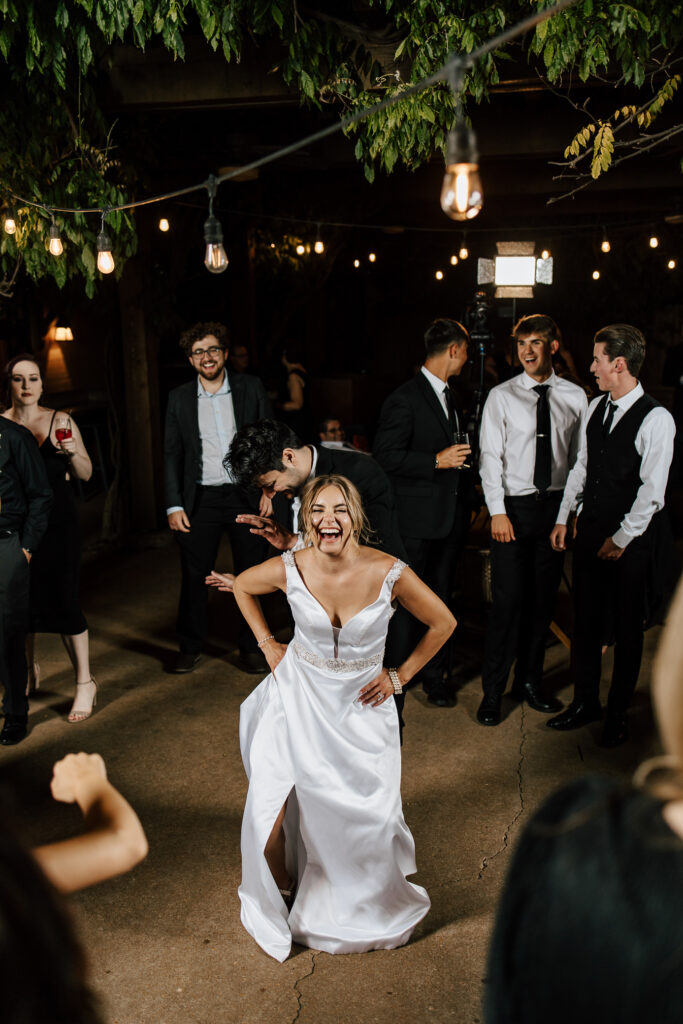
5. What’s Included in Your Packages?
Photography packages can vary widely, so it’s essential to clarify what’s included upfront. From coverage hours to the number of edited photos and additional services like albums or prints, make sure you understand exactly what you’re getting for your investment, and ask questions if the descriptions are confusing or you’re unsure of what something means. Be sure to ask about travel fees, how you’ll be able to access your photos, where and if you’ll be allowed to print your own photos, and what use rights come with the package. See an example of this on my pricing page, here.
RED FLAG: Your photographer provides all the RAW files and hands over the copyright to their images. RAW files aren’t even photos–they’re huge data files that can only be viewed, opened, and edited by professional photography software to produce an image, so they’re of no use to your average client. Additionally, a photographer handing over their copyright to their images essentially means that whoever retains that copyright can edit the photos, reproduce and sell them, and claim them as their own work. No reputable photographer will sign over their copyright to a wedding client, but will often provide rights to use or print the photos for personal use.
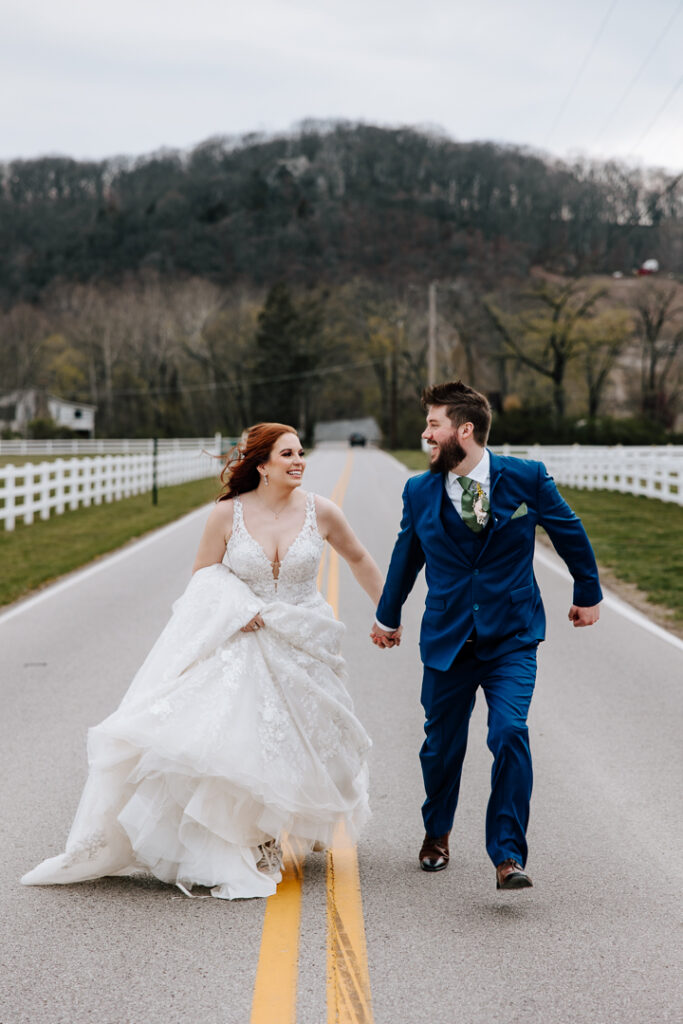
6. Do You Have Backup Equipment? What Are Your Data Handling Practices?
Murphy’s Law loves crashing weddings, so it’s crucial to ensure your photographer has backup equipment in case of technical glitches or malfunctions. Sometimes your camera just stops working and needs a time-out. You don’t want your photographer missing out on capturing those once-in-a-lifetime moments because their camera decided to throw a tantrum.
In my opinion, the minimum amount of equipment a photographer should carry with them at all times during a wedding is:
- 2 cameras, each with dual card slots
- 2 lenses
- 3 camera batteries
- Two speedlights with batteries
- Extra SD cards
Once the wedding is over, your photographer’s work isn’t done to prevent the photos from disappearing forever. It’s important that your photographer has good data handling practices to ensure your photos are safe. This includes backing up the photos to multiple places including off-site storage like cloud storage, leaving the originals on the original memory card they shot it on until the gallery is delivered, and having strong organizational skills.
RED FLAG: Your photographer only works on one camera with one sd card slot because “nothing bad has ever happened.” Maybe nothing bad has happened yet, but something will happen eventually, and putting someone’s memories from one of the most important days of their life at risk of being lost isn’t something a reputable photographer should even consider doing. Not only could the camera go kaput during your wedding, but the data could corrupt on the SD card, which means all the beautiful photos your photographer took will never see the light of day. Make sure to vet your photographer appropriately so you don’t have to worry about your files being lost.
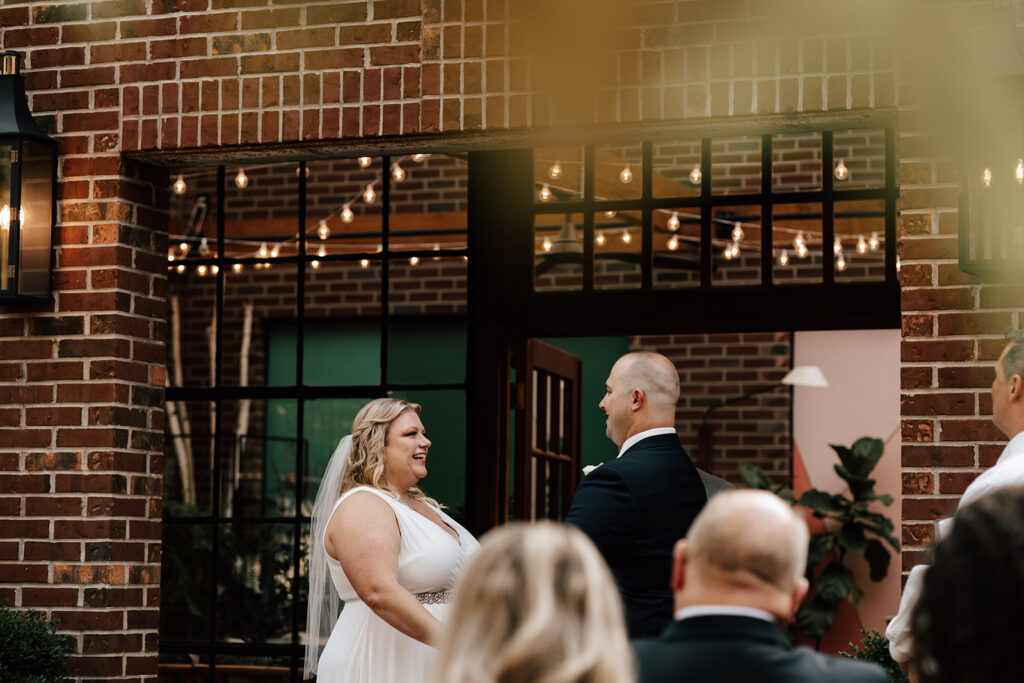
7. What Happens If There’s An Emergency and You Can’t Make it to Our Wedding?
This is something no one wants to think about, but it’s important to know the backup plan in case things go awry. Do they have someone on standby in case they can’t make it? Can their second shooter fill the role of lead shooter if needed? Will the photographer issue a refund if no one is available to photograph the wedding?
I personally have had to deal with a storm completely washing away the only bridge that connects our dead end road in the middle of the woods to the outside world, and an anaphylactic reaction that happened the morning before a wedding and required emergency medical treatment. These are things no one plans for, but there was no lapse in coverage time because I was prepared for anything and already had an emergency plan in place.
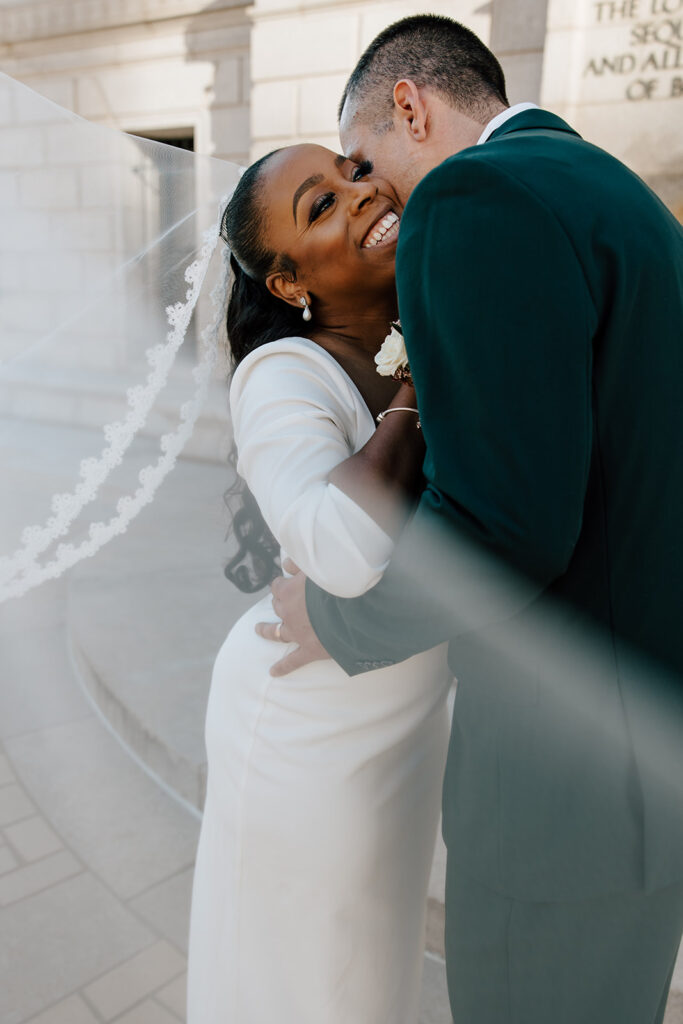
8. How Do You Handle Challenging Lighting Situations?
Weddings and elopements can present a myriad of lighting challenges, from harsh midday sun to dimly lit reception venues. Ask your photographer how they handle different lighting situations and if they have experience using additional lighting equipment or techniques to ensure stunning results in any scenario. You can also ask them to provide photos from a difficult lighting situation similar to the one you may face on your wedding day. It’s also great to know if the photographer will help you build your timeline and choose photo locations with optimal lighting in mind.
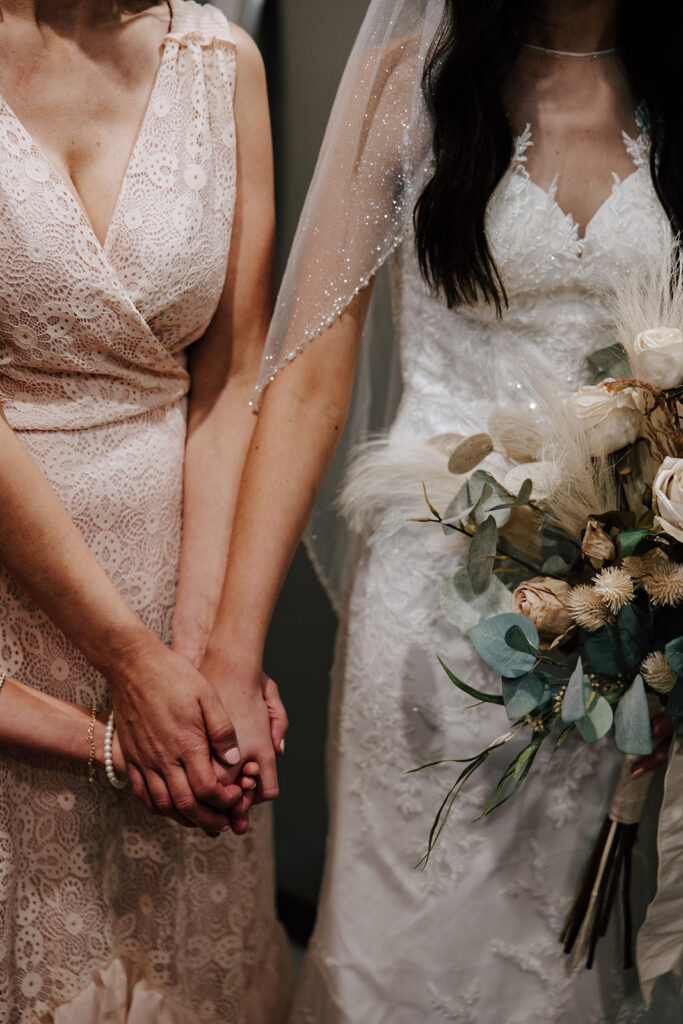
9. Can I Meet You in Person or Schedule a Video Call Before We Book?
Building a rapport with your photographer is key to feeling comfortable and relaxed on your wedding day. Ask if you can meet them in person or schedule a video call to get to know them better, discuss your vision, and ensure you’re a good fit for each other. Whether you’re looking for a traditional or non-traditional wedding photographer, trusting them 100% on your wedding day is critical to enjoying your day, and face-to-face interactions are the best to check the vibe on your potential vendors.
RED FLAG: The photographer wants you to sign a contract and pay the retainer before meeting with you face-to-face. You have no clue who you’re dealing with in this situation. It could be someone trying to scam you by booking you and then ghosting, or it could be a complete mismatch because your personalities don’t align. Some photographers require a consultation fee, but many provide these for free and no reputable photographer will ever ask for a large payment before you speak to them.
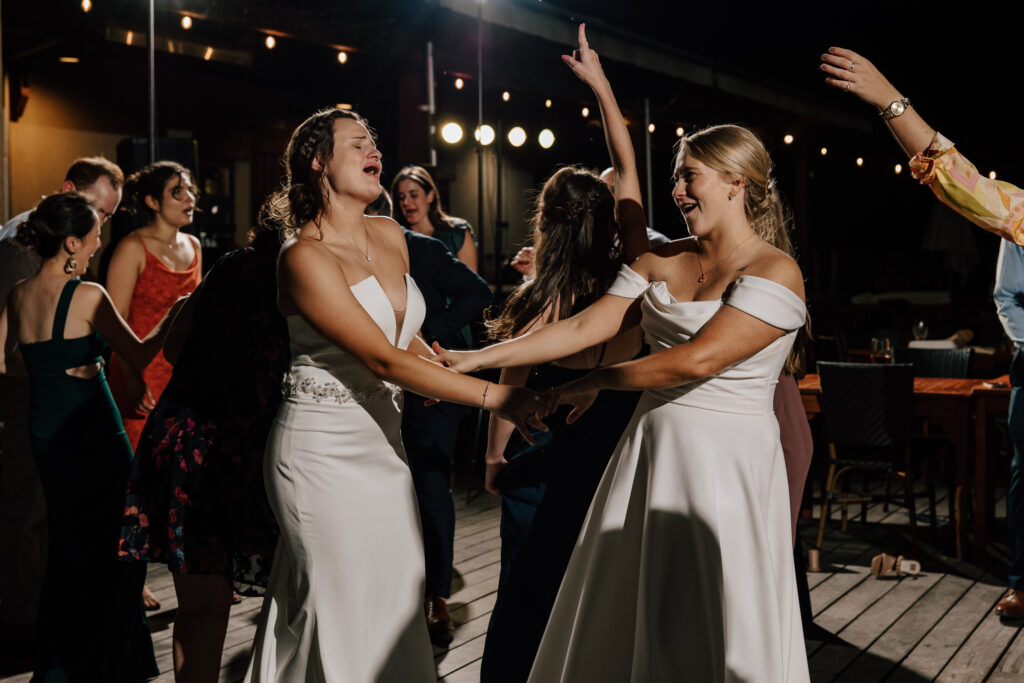
10. What’s Your Cancellation Policy?
Life is unpredictable, and sometimes plans need to change. Make sure you understand your photographer’s cancellation policy and what recourse you have in case of unforeseen circumstances. Is the booking retainer non-refundable? Is there a rescheduling fee for moving your wedding date? Make sure you understand the fine print before signing on the dotted line.
Now that you have these questions in your back pocket, you’re ready to embark on your journey to find the best wedding or elopement photographer for you. Remember, finding the right photographer isn’t just about their technical skills—it’s about finding someone who understands your vision, vibe, and values, and who you feel comfortable entrusting with capturing your most precious moments. After all, who wants to worry about the way their photos are turning out on their big day?
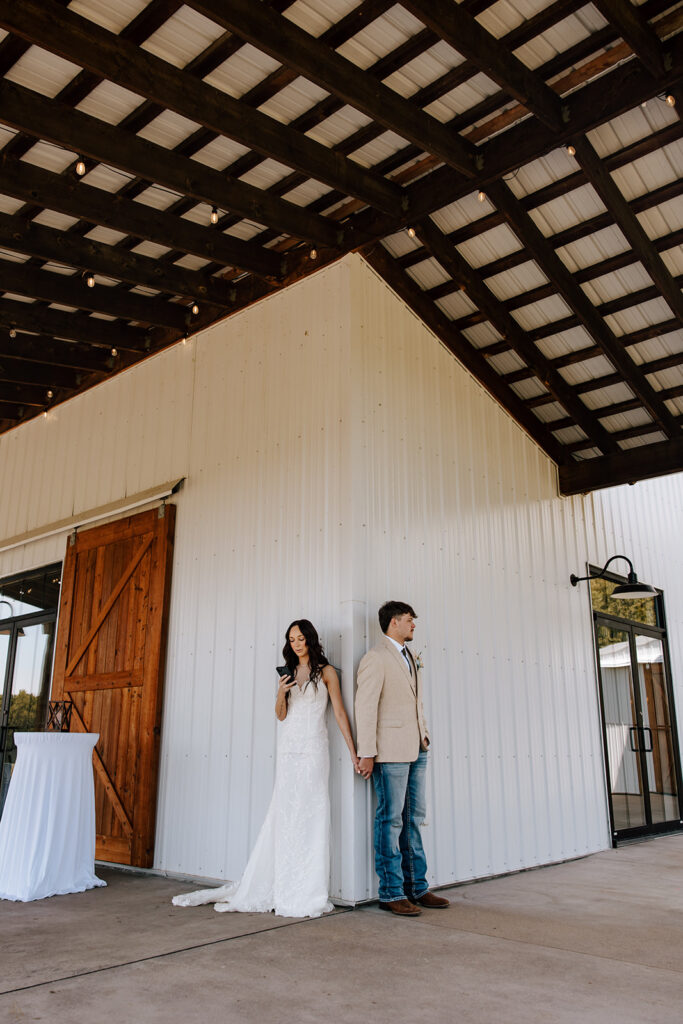
If you’re curious about my answers to some of these questions, check out my FAQ page here and have fun checking out the other pages of my website for even more information. Feel free to contact me for any questions or inquiries. Who knows–I might just be your perfect fit!
